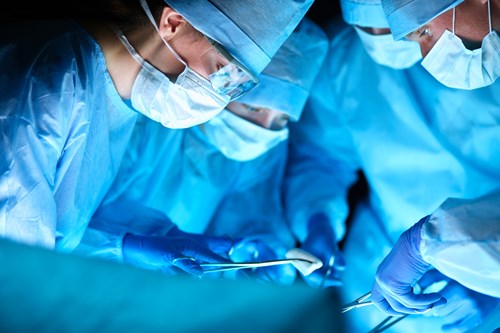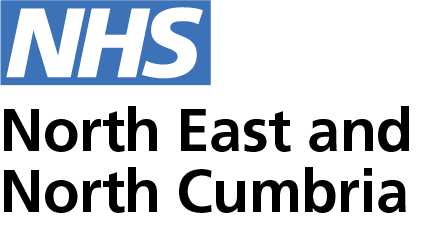Boost for region’s NHS recovery plans to tackle backlog of operations and reduce waiting times

Regional NHS plans to support its recovery from the COVID-19 pandemic will receive a share of £160m to support initiatives to speed up access to treatment – NHS England has announced.
The plans will support the region’s provider trusts to work collaboratively to reduce waiting times for people living across the North East and North Cumbria.
During the pandemic, the NHS across the region put in place a range of measures to maintain care for patients without COVID-19 and delivered more than 30,000 planned operations and procedures, around 2.75 million outpatient appointments and around 936,136 diagnostic tests.
But despite this, the pressure on staff, beds and equipment, combined with the enhanced infection prevention and control measures, meant some non-urgent care across the region had to be postponed during what was an unprecedented time for the NHS.
With the successful roll-out of more than two million vaccines across the region – the highest number in the country – and the continued decline in cases across its hospitals and communities, the region’s NHS is now focusing on its recovery which includes speeding up access to treatments and reducing any backlog.
Dame Jackie Daniel and Lyn Simpson are joint chairs of the North East and North Cumbria Provider Collaborative. The Collaborative includes ambulance, hospital/community and mental health trusts across the region who have come together to share their expertise and improve access to services.
Dame Jackie Daniel said: “Although we managed to maintain a significant amount of activity during the pandemic – a testament to our teams and the strength of joint working across the region – we cannot underestimate the challenges that lie ahead or indeed the personal impact for those patients, and their families, where treatment has been delayed.
“We recognised early on in the pandemic that we needed to respond as a region, and this applies to our recovery too. Which is why our plans are based on us joining forces across our region to ensure a sustainable plan which enables us to meet future demands too.
“Being chosen as an accelerator site and the additional financial support that we will receive will help us to see more patients more quickly and enable us to share learning across the NHS.”
The plans include:
- extending innovations introduced during the pandemic such as the use of technology – virtual wards, remote reporting of diagnostics and virtual outpatient clinics
- extended weekend and evening working
- increasing operating capacity and expanding diagnostics
- use of the independent sector
- more one stop clinics
Lyn Simpson added: “Our focus will be on prioritising those with the most urgent clinical need, those waiting the longest and on ensuring equal access to treatment for those parts of our communities which have been hardest hit by the pandemic. This joined up approach is important as we know there are different levels of capacity across the region and it’s only by working together we can really deliver what is required for our patients.”
The two key areas of focus for the region’s NHS include ophthalmology services (eyes) and orthopaedic services (bones, muscles and joints).
Cataract operations are the most common surgical procedure in the NHS with around 400,000 operations carried out every year. The region’s Cataract Treatment Centre at Sunderland Eye Infirmary is recognised nationally for its effective delivery of high-volume cataract surgery. In February, South Tyneside and Sunderland NHS Foundation Trust had an average waiting time of just seven weeks for ophthalmology services with over 90% of patients receiving their treatment within 18 weeks.
Prior to Covid-19, up to 12 routine cataract operations were being regularly carried out in just one four-hour theatre list – surpassing the suggested target of eight. Currently, surgeons at Sunderland Eye Infirmary are still performing up to 10 cases per list whilst observing covid social distancing and prevention measures. South Tyneside and Sunderland NHS Foundation Trust will share how this has been achieved with other providers in the region to help more patients who need cataract treatment to have their operations quickly.
Consultant ophthalmologist Mr Jean-Pierre Danjoux, South Tyneside and Sunderland NHS Foundation Trust’s clinical director for ophthalmology, said:
“Even without the impact of Covid-19, demand for ophthalmology services and treatments like cataract surgery is growing year-on-year and we’ve worked hard to continuously improve how we deliver our services in Sunderland.
“Our focus has always been on the quality of care and thinking about the patient experience from the start to finish of their treatment pathway. In doing so, we’ve also made great strides to improve the overall efficiency of the service and the number of patients we can see.
“Ultimately it is about great teamwork which has been pivotal to the success of the Regional Cataract Treatment Centre and something which we are always very happy and proud to share for the wider benefit of patients right across our region.”
Northumbria Healthcare NHS Foundation Trust has managed to maintain doing 67% of elective care over the last year due to having multi-sites to carry out surgery and separate patients who required routine procedures and operations from those who had more urgent health needs. Rigorous staff and patients testing, along with clinical staff only working on one site, has also enabled this.
Eliot Sykes, surgical business unit director at Northumbria Healthcare, said: “We welcome this funding and being chosen as an accelerator site as it will build on the incredible work that the team has achieved over the last year and enable us to further reduce the waiting times for our patients quicker. Our orthopaedics team, which is the fourth largest in the country, has been able to continue doing elective orthopaedic surgery over the last year. A remarkable achievement at such a difficult time. Our orthopaedic activity has been restored to historical levels and has been running throughout the second wave.”
At South Tees NHS Foundation Trust, separating work across their hospital sites enabled surgical teams to deliver almost 23,000 operations, including more than 14,500 planned surgeries during the pandemic. The trust not only serves its local communities in Teesside and North Yorkshire but patients across the north east as a major cancer, tertiary and regional trauma centre. In addition, at the height of the pandemic surgeons worked closely with cancer physicians to map a safe route through the cancer treatments to find the best and safest alternatives during the first wave. What this has meant is more use of stereotactic radiotherapy to treat early stage lung cancer as a very good alternative to surgery.
